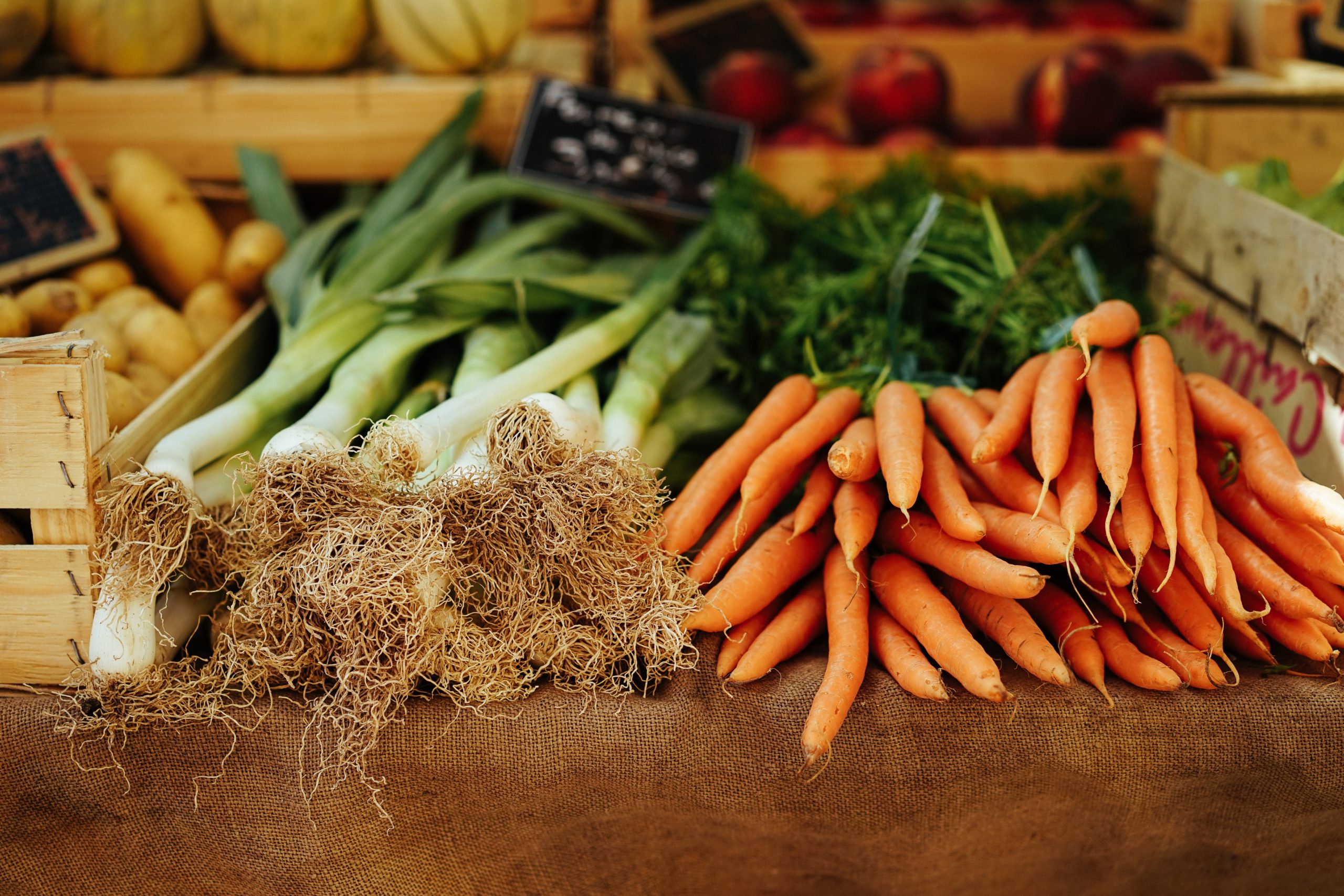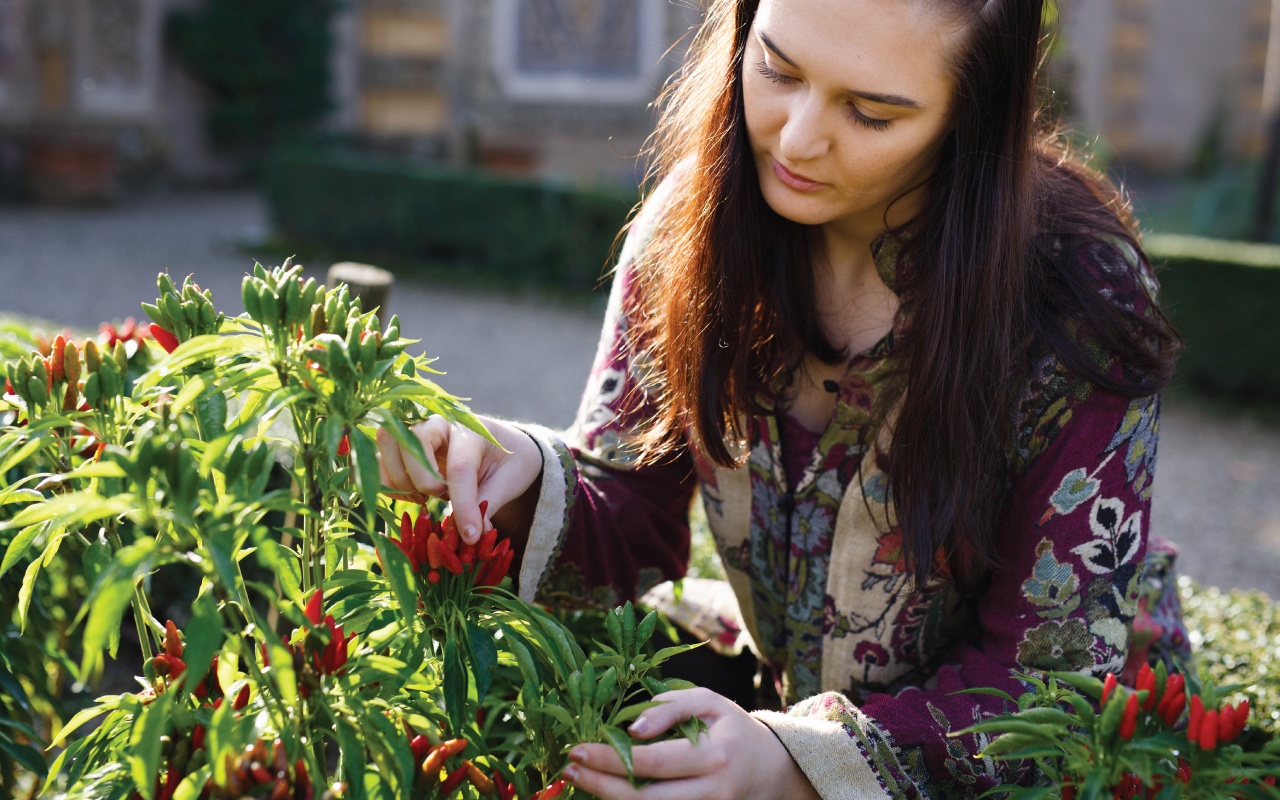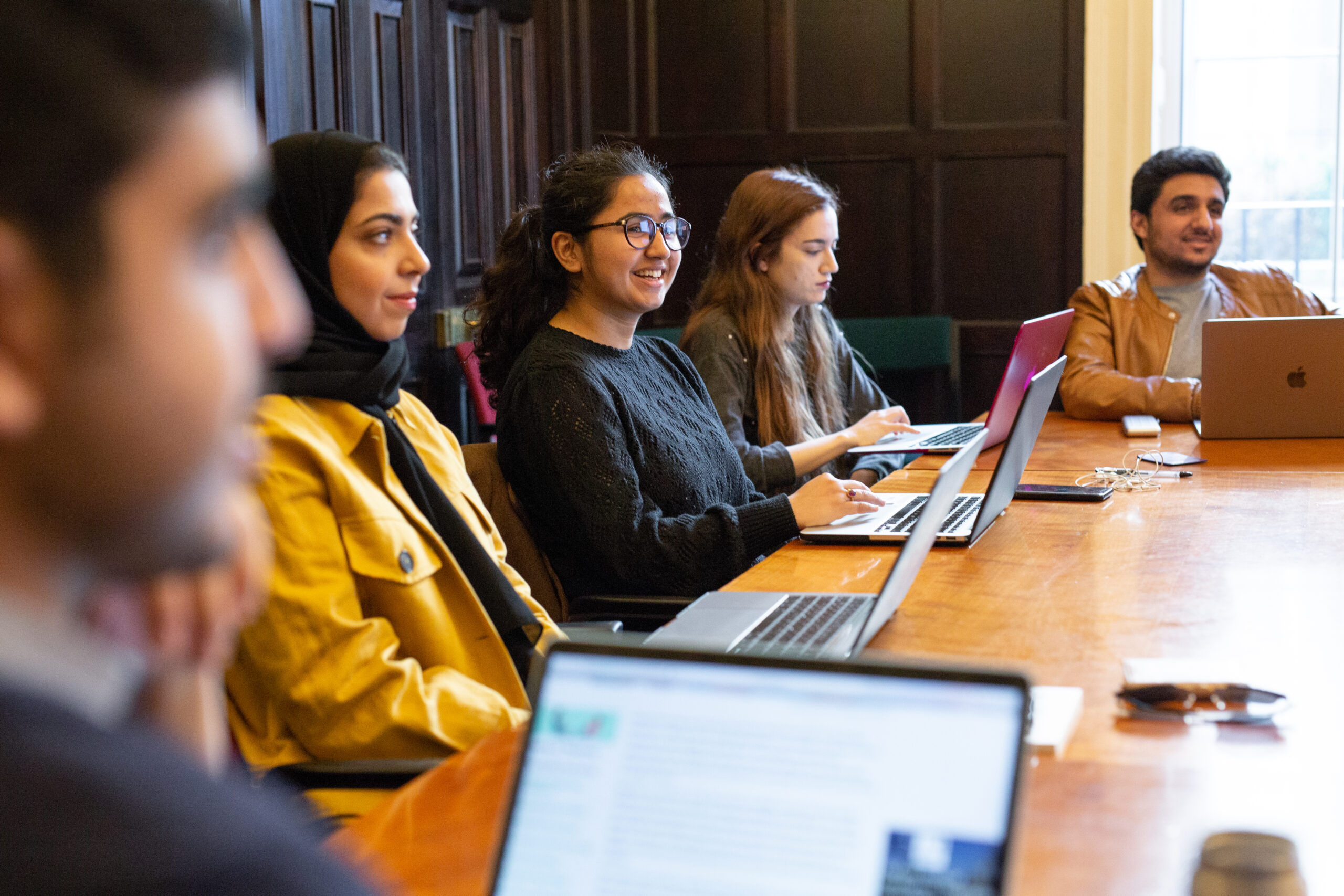Published November 29, 2022
For Professor Douglas, Conservation Is Personal, Intersectional, and Immersive
Every department at NYU is home to incredible professors who lead their field, guide students toward future careers, and are ready to leap into the role of educator and mentor. One such professor is Leo R. Douglas. He’s an NYU Liberal Studies clinical assistant professor and winner of the 2021 Dr. Martin Luther King, Jr. Faculty Award and the 2021 and 2022 NYU Arts & Science Teaching Innovation Awards. Through his own personal documentaries, immersive lessons across New York City, and interdisciplinary, inclusive teaching, he shows students they don’t have to travel to the rainforest to support conservation efforts. They can celebrate the involvement of Indigenous people in global environmental protection wherever they are in the world.
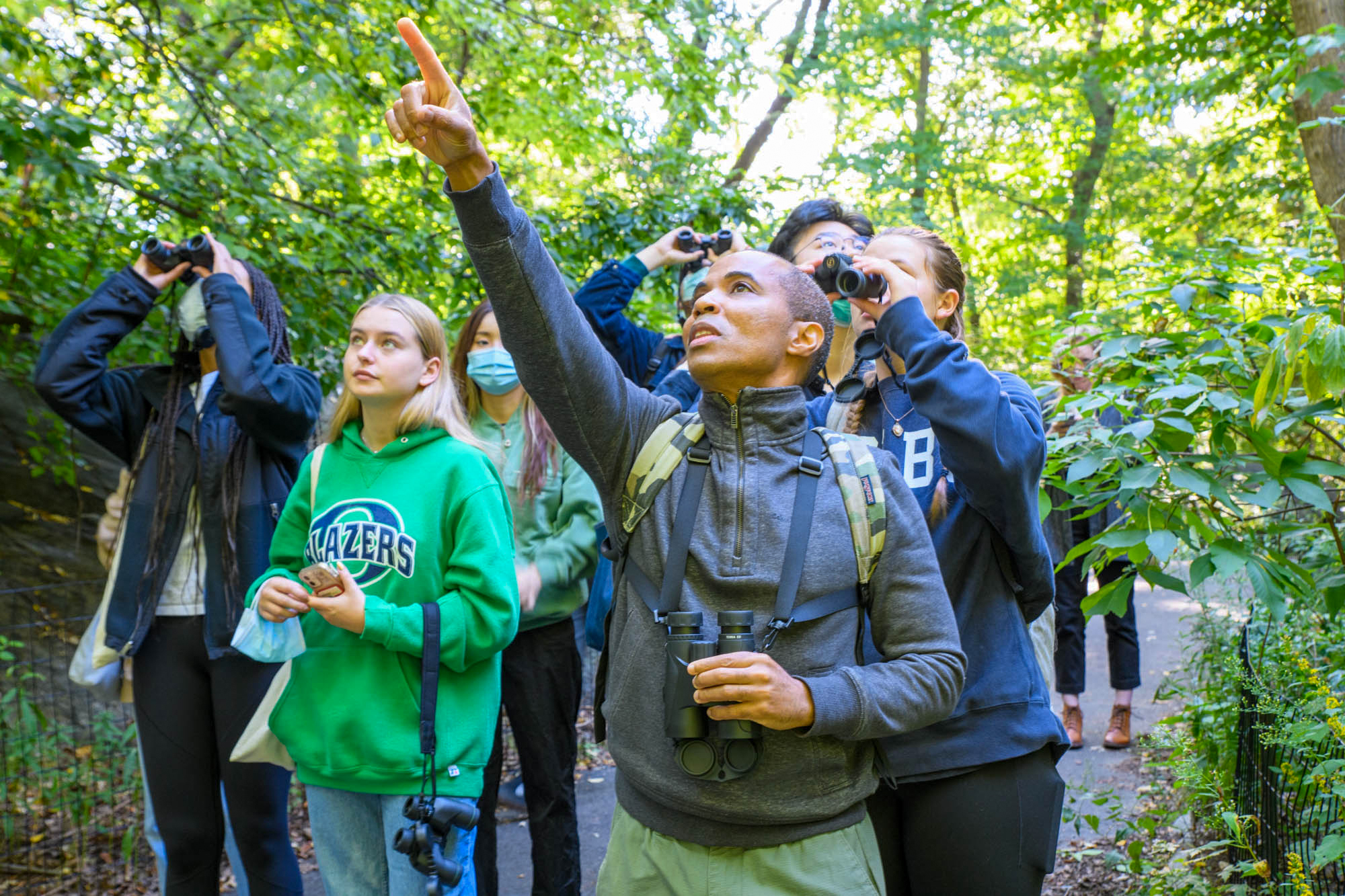
Global Connections
Professor Douglas has connections all over the world. And he brings this global perspective into his classroom. For his environmental studies courses, he leans on his training as a conservation biologist and his early work in biodiversity conservation. For example, as the former president of BirdsCaribbean, he campaigned to protect macaws and parrots in the eastern Caribbean. “I also teach about working with people south of the border. Specifically, what it’s like to engage with communities there around conservation issues,” he explains. “My work allows my students the opportunity to interact with people they might not otherwise meet.”
Last summer, he spent time in Jamaica shooting a documentary about the reimagining of gender identity, sexuality, nationality, and race in relation to conservation. He commissioned visual artists from around the globe—Peru, Nigeria, Jamaica—to explore different questions. For example, do women engage in conservation? Why are people from Harvard and Columbia considered conservationists when people living and working in the regions year-round are disregarded? And how do we challenge the story of the contributions of traditional teachers and the role they play in protecting nature, biodiversity, and protected lands? This fall students had the chance to interact with this work, meeting Indigenous people and artists online to discuss a comprehensive understanding of environmental protection.
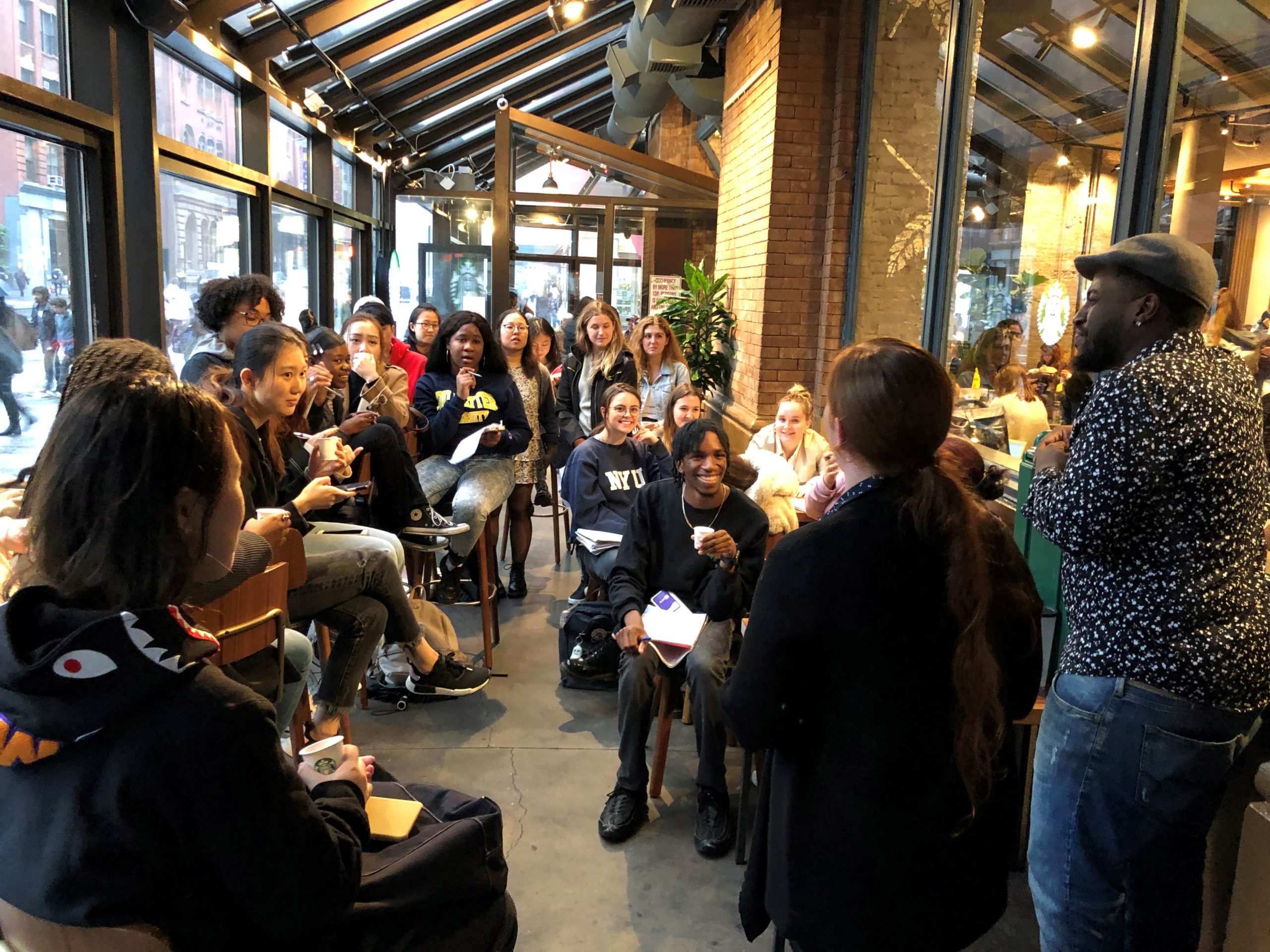
Immersive Learning
There are many other opportunities to witness conservation efforts in Professor Douglas’ classes. Each year, his module titled From Farm to Cup, featuring another documentary he shot, analyzes Jamaican Blue Mountain coffee. Students follow the journey of the coffee from its growth in the Blue Mountains through its preparation at a Manhattan Starbucks, Skyping with farmers and meeting regional Starbucks managers to discuss everything from pesticides to plastic straws. Other opportunities right in New York City include a bird-watching trip to learn about the woodpeckers in Central Park and a discussion with employees at Swedish company Fjällräven about how they make their bags from recycled plastic water bottles collected from the ocean.
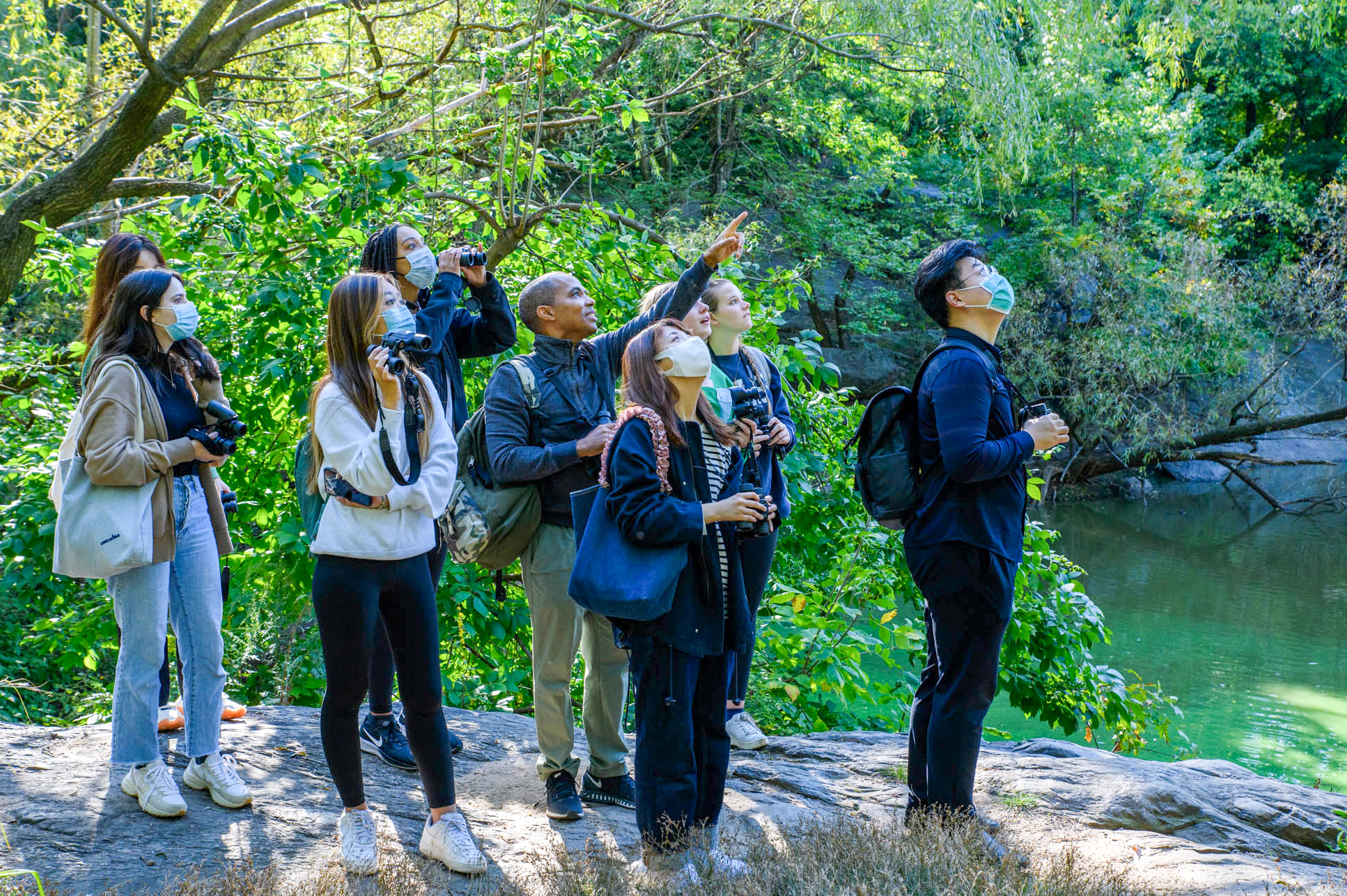
An Interdisciplinary, Inclusive Approach
Environmental work is inherently interdisciplinary. Therefore, Professor Douglas emphasizes these connections for his students. “While the work is rooted in science, it’s disproportionately social,” he says. In examining how greenhouse gases affect the world, he encourages students to consider how they affect quality of life and the livability of spaces. How does sociology or religion affect everything from large environmental issues to a simple stroll in the park? “Think about the fact that not everybody is affected in the same way,” he says. “I live a block and a half from Central Park, with lots of access to green space. But how do people who live farther away get access, and at what cost? Does it mean they go to the park less? How does this impact their awareness of woodpeckers, their mental health, and their mood and well-being?”
Because NYU is a diverse community, classrooms are also filled with people who come from different backgrounds and experiences. This enriches class discussions about purchasing power or park accessibility. But, sometimes, differences run deeper. “Students have come to me with their struggle to attend a bird-watching trip due to work schedules or cultural differences that make traditional participation difficult,” Professor Douglas says. To accommodate, he added extra trips and an online participation option. And his students recognized these efforts when they nominated him for the Dr. Martin Luther King, Jr. Faculty Award. Inclusivity starts in the classroom, and giving every student access to a supportive environment is essential to their learning.
“We’re not as rational as we think. And information does not drive people to action—feelings do,” Professor Douglas says. “What’s most important is that students come away from my classes with that connection. That they can taste the rainforest in their cup of coffee and imagine how their purchase might determine whether someone in Belize or Peru has access to running water or a bathroom. It might impact iconic species from the rainforest. As a result, that one choice can become very personal for them.”

